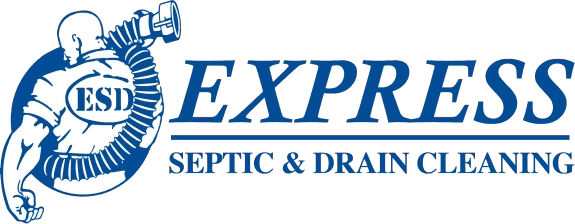In short, a septic tank’s average lifespan is between 15 and 40 years. However, this figure isn’t cast in stone; it depends on different elements, including the building material, water table, soil acidity, and maintenance techniques. Thus, our estimate assumes that your household system was suitably planned and built by a certified plumbing expert as per the local construction codes.
If your tank has started showing signs of aging, this article can offer you useful information for estimating how many years it has left. We’ll look at each of the aspects affecting a septic tank’s longevity and how to use it optimally. We’ll also discuss the best technique for routine maintenance.
The Material Used for Construction
Discovering what your system is constructed of is among the most important facets of calculating its longevity. Manufacturers build septic systems with various materials. Steel and concrete systems are among the most prevalent types of materials.
Steel
Steel septic tanks have the shortest lifespan of all septic tanks, owing to their susceptibility to rust. Consider yourself fortunate if you can get 20 years out of a steel septic tank system.
And so, it’s critical to have your steel tank examined regularly before you run out of luck and it starts to rust. If a rusting system is uncovered early enough, your plumber can repair it before irreversible damage occurs. If your tank is more than 10 years old and hasn’t been examined in six to eight months, don’t wait any longer.
Express Septic & Drain Cleaning is your local plumbing expert who can fully evaluate your entire system. We’ll examine its current state and provide a more clear-cut estimate of how long it should last.
Concrete
Septic tanks made of concrete have the longest lifespan. It’s for this reason that they’re more expensive and, in some cases, difficult to install. A well-designed and well-built concrete septic system can last for about 40 to 100 years.
There are usually no external variables that will reduce a concrete septic tank’s lifespan if the pipes don’t clog or corrode, and the tank was built out of high-quality concrete. Nevertheless, this longevity doesn’t absolve concrete tanks from inspection. Have yours inspected regularly to ensure that no fractures have formed because of settlement or ground shifting.
Drain Field
Also known as a leach field, a septic system’s drain field is a web of pipes that split off from your septic tank and distribute the wastewater. Your tank could quickly load up and spill onto your yard without a properly working drain field, posing a serious health risk to people and pets who encounter any hazardous waste overflow. Drain field pipes are commonly composed of steel, PVC plastic, or cast iron and can last 50 years if properly placed and maintained.
Have Express Septic & Drain Cleaning inspect your cast-iron and steel pipes at least once each year. We’ll also inspect your PVC pipes to guarantee that they’re in good working order.
Indeed, you don’t want to deal with leaky or damaged pipes polluting your property and requiring costly cleanup. The ideal type of preventive maintenance is detecting a possible issue before it escalates into a problem.
Type of Soil
In the soil where your service provider buried your system, acidity level is another element that can affect its lifespan. For instance, it will be difficult for the waste carried by your drain field to infiltrate and distribute into the soil if your system is buried in solid, clay-like soil. This can cause blockages that go back into your tank, triggering it to overflow.
This, too, can result in major health problems. And so, if your tank is covered up with solid clay-like soil, it’s preferable to schedule more frequent inspections and maintenance. Especially if you have many members in your household, this is the best way to avoid an overflow.
Non-acidic/Neutral or Slightly Alkaline Soil
Non-acidic, neutral, or slightly alkaline soil is preferable for septic system installation. Normally, acidic soil corrodes plastic, steel, and cast-iron drainage pipes over time. This also holds when your tank is made of steel or another corrosive material.
The longevity of systems buried in almost neutral soil is significantly higher. So, when planning and arranging routine inspections and maintenance, consider your soil type.
Extremely Acidic Soil
As previously stated, excessively acidic soil will shorten your septic system’s lifespan. Concrete tanks will hold up better than plastic and steel tanks, but excessively acidic soil will eventually wreak havoc on all systems. If you’re not sure about your current type of soil or if you’re planning to buy a property with a septic system, have us test your soil to see how acidic it is.
Schedule an inspection with a technician to confirm if the system is in good working condition and if the soil is highly acidic. Also, schedule regular maintenance to pinpoint any potential issues because of soil acidification.
Water Table
The water table is the top water layer beneath the soil’s surface that should be sufficiently low to allow sewage water to filter into your soil. If your property’s water table is extremely high, the soil won’t absorb water coming from the drain field. Without a place to go, the water will go back into your tank, which will cause the entire system to run off.
If you dwell in a valley or any low location prone to flooding, the soil around and within your property might have a higher water table. This could lead to more frequent backups, significantly reducing your system’s lifespan.
Usage
It stands to reason that the more you use your septic system, the sooner you’ll replace it. There is a significant difference between two and four people using a septic system. Nevertheless, the additional demand a large family places on a system is reduced if the system is effectively maintained with regular service and inspections.
How to Conduct a Septic Examination
If your septic system fails and causes environmental contamination, the authorities will command you to replace it entirely. Therefore, it is advisable to monitor it frequently to ensure that it is operating effectively. Start by monitoring for the following signs of a malfunctioning system:
- Drainage systems that empty slowly
- Wastewater backup into the residence
- Wet and odorous patches in the yard
- Issues with the drains during a rainstorm
- Frequent need for pumping
- Overly green grass in the area above the septic tank
Routine Inspections and Maintenance
Undoubtedly, there’s a pattern in the longevity of septic tanks. We offer a range of septic services from periodic checkups to professional maintenance. These services are among the most effective approaches to extending the life of your septic system.
Call Express Septic & Drain Cleaning today to schedule an appointment in Nampa, ID. We offer our clients a range of top-notch services, including septic tank inspection, pumping, installation and repair, and riser installation. We also offer drain field installation and replacement, preventative maintenance, hydro-jetting, and well and water testing. Our experts will inspect, test, and pump your tank to ensure that you don’t run into expensive and possibly serious health issues. For installation services, we can offer financing to customers with approved credit. Call us now for more information.



